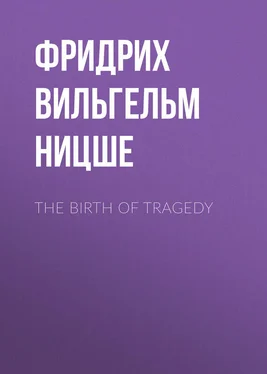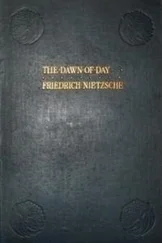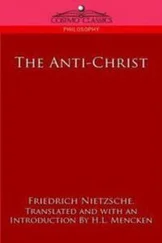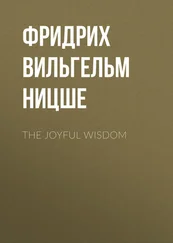Фридрих Ницше - The Birth of Tragedy
Здесь есть возможность читать онлайн «Фридрих Ницше - The Birth of Tragedy» — ознакомительный отрывок электронной книги совершенно бесплатно, а после прочтения отрывка купить полную версию. В некоторых случаях можно слушать аудио, скачать через торрент в формате fb2 и присутствует краткое содержание. Жанр: Философия, literature_19, foreign_antique, foreign_prose, на английском языке. Описание произведения, (предисловие) а так же отзывы посетителей доступны на портале библиотеки ЛибКат.
- Название:The Birth of Tragedy
- Автор:
- Жанр:
- Год:неизвестен
- ISBN:нет данных
- Рейтинг книги:3 / 5. Голосов: 1
-
Избранное:Добавить в избранное
- Отзывы:
-
Ваша оценка:
- 60
- 1
- 2
- 3
- 4
- 5
The Birth of Tragedy: краткое содержание, описание и аннотация
Предлагаем к чтению аннотацию, описание, краткое содержание или предисловие (зависит от того, что написал сам автор книги «The Birth of Tragedy»). Если вы не нашли необходимую информацию о книге — напишите в комментариях, мы постараемся отыскать её.
The Birth of Tragedy — читать онлайн ознакомительный отрывок
Ниже представлен текст книги, разбитый по страницам. Система сохранения места последней прочитанной страницы, позволяет с удобством читать онлайн бесплатно книгу «The Birth of Tragedy», без необходимости каждый раз заново искать на чём Вы остановились. Поставьте закладку, и сможете в любой момент перейти на страницу, на которой закончили чтение.
Интервал:
Закладка:
On the other hand, we should not have to speak conjecturally, if asked to disclose the immense gap which separated the Dionysian Greek from the Dionysian barbarian. From all quarters of the Ancient World – to say nothing of the modern – from Rome as far as Babylon, we can prove the existence of Dionysian festivals, the type of which bears, at best, the same relation to the Greek festivals as the bearded satyr, who borrowed his name and attributes from the goat, does to Dionysus himself. In nearly every instance the centre of these festivals lay in extravagant sexual licentiousness, the waves of which overwhelmed all family life and its venerable traditions; the very wildest beasts of nature were let loose here, including that detestable mixture of lust and cruelty which has always seemed to me the genuine "witches' draught." For some time, however, it would seem that the Greeks were perfectly secure and guarded against the feverish agitations of these festivals ( – the knowledge of which entered Greece by all the channels of land and sea) by the figure of Apollo himself rising here in full pride, who could not have held out the Gorgon's head to a more dangerous power than this grotesquely uncouth Dionysian. It is in Doric art that this majestically-rejecting attitude of Apollo perpetuated itself. This opposition became more precarious and even impossible, when, from out of the deepest root of the Hellenic nature, similar impulses finally broke forth and made way for themselves: the Delphic god, by a seasonably effected reconciliation, was now contented with taking the destructive arms from the hands of his powerful antagonist. This reconciliation marks the most important moment in the history of the Greek cult: wherever we turn our eyes we may observe the revolutions resulting from this event. It was the reconciliation of two antagonists, with the sharp demarcation of the boundary-lines to be thenceforth observed by each, and with periodical transmission of testimonials; – in reality, the chasm was not bridged over. But if we observe how, under the pressure of this conclusion of peace, the Dionysian power manifested itself, we shall now recognise in the Dionysian orgies of the Greeks, as compared with the Babylonian Sacæa and their retrogression of man to the tiger and the ape, the significance of festivals of world-redemption and days of transfiguration. Not till then does nature attain her artistic jubilee; not till then does the rupture of the principium individuationis become an artistic phenomenon. That horrible "witches' draught" of sensuality and cruelty was here powerless: only the curious blending and duality in the emotions of the Dionysian revellers reminds one of it – just as medicines remind one of deadly poisons, – that phenomenon, to wit, that pains beget joy, that jubilation wrings painful sounds out of the breast. From the highest joy sounds the cry of horror or the yearning wail over an irretrievable loss. In these Greek festivals a sentimental trait, as it were, breaks forth from nature, as if she must sigh over her dismemberment into individuals. The song and pantomime of such dually-minded revellers was something new and unheard-of in the Homeric-Grecian world; and the Dionysian music in particular excited awe and horror. If music, as it would seem, was previously known as an Apollonian art, it was, strictly speaking, only as the wave-beat of rhythm, the formative power of which was developed to the representation of Apollonian conditions. The music of Apollo was Doric architectonics in tones, but in merely suggested tones, such as those of the cithara. The very element which forms the essence of Dionysian music (and hence of music in general) is carefully excluded as un-Apollonian; namely, the thrilling power of the tone, the uniform stream of the melos, and the thoroughly incomparable world of harmony. In the Dionysian dithyramb man is incited to the highest exaltation of all his symbolic faculties; something never before experienced struggles for utterance – the annihilation of the veil of Mâyâ, Oneness as genius of the race, ay, of nature. The essence of nature is now to be expressed symbolically; a new world of symbols is required; for once the entire symbolism of the body, not only the symbolism of the lips, face, and speech, but the whole pantomime of dancing which sets all the members into rhythmical motion. Thereupon the other symbolic powers, those of music, in rhythmics, dynamics, and harmony, suddenly become impetuous. To comprehend this collective discharge of all the symbolic powers, a man must have already attained that height of self-abnegation, which wills to express itself symbolically through these powers: the Dithyrambic votary of Dionysus is therefore understood only by those like himself! With what astonishment must the Apollonian Greek have beheld him! With an astonishment, which was all the greater the more it was mingled with the shuddering suspicion that all this was in reality not so very foreign to him, yea, that, like unto a veil, his Apollonian consciousness only hid this Dionysian world from his view.
In order to comprehend this, we must take down the artistic structure of the Apollonian culture, as it were, stone by stone, till we behold the foundations on which it rests. Here we observe first of all the glorious Olympian figures of the gods, standing on the gables of this structure, whose deeds, represented in far-shining reliefs, adorn its friezes. Though Apollo stands among them as an individual deity, side by side with others, and without claim to priority of rank, we must not suffer this fact to mislead us. The same impulse which embodied itself in Apollo has, in general, given birth to this whole Olympian world, and in this sense we may regard Apollo as the father thereof. What was the enormous need from which proceeded such an illustrious group of Olympian beings?
Whosoever, with another religion in his heart, approaches these Olympians and seeks among them for moral elevation, even for sanctity, for incorporeal spiritualisation, for sympathetic looks of love, will soon be obliged to turn his back on them, discouraged and disappointed. Here nothing suggests asceticism, spirituality, or duty: here only an exuberant, even triumphant life speaks to us, in which everything existing is deified, whether good or bad. And so the spectator will perhaps stand quite bewildered before this fantastic exuberance of life, and ask himself what magic potion these madly merry men could have used for enjoying life, so that, wherever they turned their eyes, Helena, the ideal image of their own existence "floating in sweet sensuality," smiled upon them. But to this spectator, already turning backwards, we must call out: "depart not hence, but hear rather what Greek folk-wisdom says of this same life, which with such inexplicable cheerfulness spreads out before thee." There is an ancient story that king Midas hunted in the forest a long time for the wise Silenus, the companion of Dionysus, without capturing him. When at last he fell into his hands, the king asked what was best of all and most desirable for man. Fixed and immovable, the demon remained silent; till at last, forced by the king, he broke out with shrill laughter into these words: "Oh, wretched race of a day, children of chance and misery, why do ye compel me to say to you what it were most expedient for you not to hear? What is best of all is for ever beyond your reach: not to be born, not to be , to be nothing. The second best for you, however, is soon to die."
How is the Olympian world of deities related to this folk-wisdom? Even as the rapturous vision of the tortured martyr to his sufferings.
Now the Olympian magic mountain opens, as it were, to our view and shows to us its roots. The Greek knew and felt the terrors and horrors of existence: to be able to live at all, he had to interpose the shining dream-birth of the Olympian world between himself and them. The excessive distrust of the titanic powers of nature, the Moira throning inexorably over all knowledge, the vulture of the great philanthropist Prometheus, the terrible fate of the wise Œdipus, the family curse of the Atridæ which drove Orestes to matricide; in short, that entire philosophy of the sylvan god, with its mythical exemplars, which wrought the ruin of the melancholy Etruscans – was again and again surmounted anew by the Greeks through the artistic middle world
Читать дальшеИнтервал:
Закладка:
Похожие книги на «The Birth of Tragedy»
Представляем Вашему вниманию похожие книги на «The Birth of Tragedy» списком для выбора. Мы отобрали схожую по названию и смыслу литературу в надежде предоставить читателям больше вариантов отыскать новые, интересные, ещё непрочитанные произведения.
Обсуждение, отзывы о книге «The Birth of Tragedy» и просто собственные мнения читателей. Оставьте ваши комментарии, напишите, что Вы думаете о произведении, его смысле или главных героях. Укажите что конкретно понравилось, а что нет, и почему Вы так считаете.












